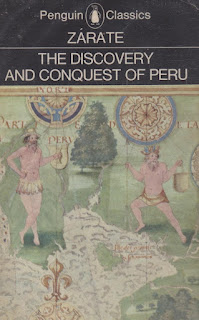 I was reading a book of essays by A.Muthulingam and that had an interview with the Canadian dramatist - Dean Gilmour - who has staged many of Chekhov's dramas. There was discussion of his production of Chekhov's 'In the Ravine' but what I was thinking of during the reading was Henrik Ibsen and 'A Doll's House'.
I was reading a book of essays by A.Muthulingam and that had an interview with the Canadian dramatist - Dean Gilmour - who has staged many of Chekhov's dramas. There was discussion of his production of Chekhov's 'In the Ravine' but what I was thinking of during the reading was Henrik Ibsen and 'A Doll's House'.I do not remember how I came across Ibsen. I must've made the leap from Wilde into Chekhov and from him to Ibsen. But what I remember vividly is being stunned by the end of the third act of 'A Doll's House' , when Nora decides to leave.
'A Doll's House' is a simple tale. Nora - the heroine of the play - gets into a financial difficulty without the knowledge of her Husband, Helmer. He gets mad when he comes to know about it and this triggers a fight between them. Though the situation resolves itself, Nora realizes her position in the house and leaves Helmer and the children - removes her wedding ring and literally shuts the door on him. The story ends.
What Ibsen was trying to do was to show the position of women in the 19th century European societies and it was considered too radical at that time - the wife leaving the husband and children. It also triggered a lot of discussion around the place of woman in the society and household.
To me, reading the drama was a revelation. It put in words what I was thinking for long and Nora emerges as the most unlikely heroine of her times. The 21st century Indian woman is being asked to make the same choices and being held in the same position as the 19th century European women - which I think makes it mandatory for this drama to be part of the curriculum for years to come.
"It's true Torvald. When I lived at home with Papa, he used to tell me his opinion about everything, and so I had the same opinion. If I thought differently, I had to hide it from him, or he wouldn't have liked it. He called me his little doll, and he used to play with me just as I played with my dolls. Then I came to live in your house -
I mean when I passed out of Papa's hands into yours. You arranged everything to suit your own tastes, and so I came to have the same tastes as yours.. or I pretended to. I'm not quite sure which.. perhaps it was a bit of both -- sometimes one and sometimes the other. Now that I come to look at it, I've lived here like a pauper -- simply from hand to mouth. I've lived by performing tricks for you, Torvald. That was how you wanted it. You and Papa have committed a grievous sin against me: it's your fault that I've made nothing of my life."
That is the crux of Nora's argument and it fits like a glove to the Indian women. We keep them in their place - not by tradition or religion - but by tightly controlling the access to the money. Working women in today's India are looked suspiciously since the financial independence has given them the access to life like never before - so the cultural chains are brought in more and more these days.
Now, without professing an opinion on the subject, it is this relevance of the subject - across lands and cultures - that makes up for great literature. And it would be explosive in the Indian context - if people understand the work in its exact nature and apply it to them. When Nora says that women sacrifice their honor for the men they are with, it becomes an Indian play immediately.
However, we know that Indian education does not make you learn anything. I was re-reading the drama again for this and was searching to see if this is already in course material in India. It is - at least in the MA English at University of Madras and came across this 'Critical analysis' - by an assistant professor at MCC, Chennai, no less. The complete soulless reading of the drama is as expected and the complete misreading of what it means cannot be said more clearly.
“HELMER: But this is disgraceful. Is this the way you neglect your most sacred duties?
NORA: What do you consider is my most sacred duty?
HELMER: Do I have to tell you that? Isn't it your duty to your husband and children?
NORA: I have another duty, just as sacred.
HELMER: You can't have. What duty do you mean?
NORA: My duty to myself.”
This becomes a problem in the Indian context - where any discussion on a subject is only possible in a very small level - since the way we bring up the girl kids is no different from the years before - with marriage as the end goal and that the conversation need to be started by the women in a larger context - both does not seem to be possible at all for now.
The other play 'Hedda Gabler' - where Hedda manipulates her ex-lover into suicide for her own ends - needs its own analysis as well. But to me, Ibsen remains the most influential dramatist of that generation.

No comments:
Post a Comment